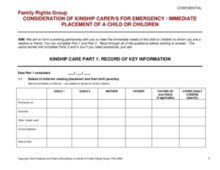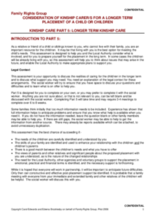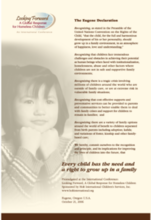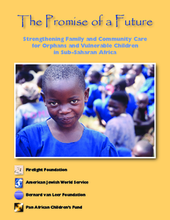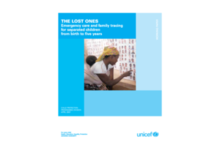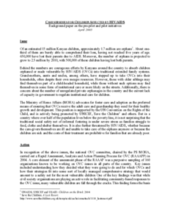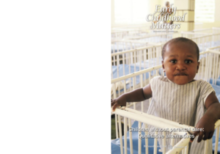Displaying 551 - 560 of 579
A template for assessing the suitability of kinship caregivers in the short term, and for planning the care of a child in kinship care. There are sections that can be given to potential caregivers to help them prepare for caring for a child.
Save the Children's "First Resort" series focuses on the needs and rights of children who, for a wide variety of reasons, are lacking adequate parental care. This third paper in the First Resort series presents practical examples of the range of options available to policy-makers, practitioners and others with responsibilities for the care and protection of children without adequate parental care.
A template for assessing the suitability of kinship caregivers in the longer term, and for planning the care of a child in kinship care.
Recognition of the crises affecting children and a commitment to improving the lives of children.
A brief document advocating for the strengthening and support of community based responses to children and families affected by HIV/AIDS in Africa.
A series of papers examining kinship care options and programs in the US which address low socio-economic status, culturally appropriate care, exemplary models of kinship care, and public policy.
A manual primarily concerned with the prevention of separation of children during emergencies. It provides a field-oriented guide to solve problems specific to emergency care and tracing and family reunification of babies and children five years and younger.
Outlines the impact of a pre-pilot conditional cash transfer scheme implemented in Kenya and defines key issues to be considered before moving forward into pilot and national schemes. Short annexes include tools/frameworks to guide implementation.
This paper examines childcare policy in Mozambique. It finds that vulnerability increases when orphans are placed in resource-poor kinship care arrangements.
Collection of articles highlighting suggestions on how to improve existing mechanisms for providing adequate care. Major article on the current state of international thinking on children without parental care.

